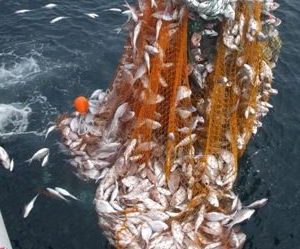Misdirected growth targets can have unintended consequences. Our fisheries are still recovering from Government policies implemented 40 years ago. A comprehensive review of the Quota Management System will hopefully reveal areas that can be fixed so our fisheries can be restored to abundant levels.
Having enough fish to sustain the environment and provide for people’s needs will reduce conflict and leave us more time to develop conservation measures to guard our fisheries from future shocks.

The major decline in our inshore fish stocks occurred during the 1970s and 80s. At the time the government was encouraging the expansion of domestic commercial fishing, with subsidies for building a fleet of large vessels. But, instead of heading offshore to develop the deep water fisheries, these vessels stayed inshore and applied industrial fishing power to the fisheries that were popular with the public.
Industrial methods include pair trawling (towing a very large net between two boats) and purse seining (catching whole schools of fish at one time).
In just 10 to 15 years overfishing and the need to reduce fishing effort led to the introduction of the Quota Management System (in 1986).
An insightful Minister, Doug Kidd, gave us a Fisheries Act in 1996 that was based on principles and high environmental standards.
Over time the public has lost faith in the quota system because it favours the large companies and Queen Street investors, while passing the environmental costs onto others. The Act’s principles and standards barely rate a mention.
Even overseas scientists have questioned how a self professed “clean, green” country can allow trawling, purse seining and dredging to be deployed in sensitive, inshore nursery areas.
“It is no wonder that people are now calling for trawling to be banned from inshore waters.”
LegaSea
Fundamental changes are obviously required if we aspire to passing on abundant fisheries to our children.
LegaSea is one voice amongst many calling for a comprehensive review of the QMS and an independent Commission of Inquiry into the way our fisheries are managed.





